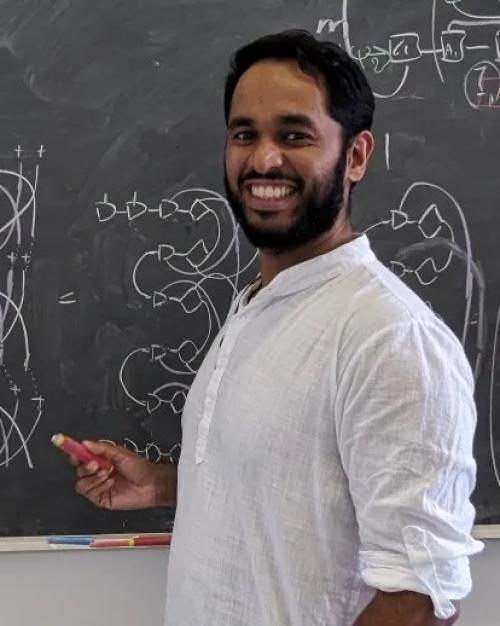Darren Pereira is a doctoral candidate in physics whose summer research focused on ultracold atomic systems at the University of Florence in Florence, Italy.
Describe the location of your summer research.
My work was carried out at the physics department of the University of Florence in Florence, Italy. The major attraction of this physics department for me was its first floor; it houses a startling array of experimental facilities for studying ultracold atomic systems, as the university is also the location of the European Laboratory for Non-Linear Spectroscopy (LENS), an international European collaboration.
What’s the focus of your research?
My research concerns the study of ultracold atoms. These are atoms that can be cooled to incredibly low temperatures, where the laws of quantum mechanics become important. With an ingenious use of laser light, these atoms are trapped and interact with one another, allowing physicists to study quantum effects with unprecedented precision and control. My research focuses on the theory of ultracold atoms and the novel phenomena we predict will arise from quantum physics.
What do you hope will be the impact of this work?
The advent of ultracold atom techniques has been heralded as a “quantum revolution.” From a practical perspective, its impact may involve a revolution in technology, communications and other applications, as we begin to harness quantum effects for technological benefits. From a fundamental perspective, this research provides a new avenue for physicists to study the laws and effects of quantum mechanics, which may shed light on unsolved problems while bringing about new discoveries.
How will summer research advance your understanding of your research in a way that classes or theory does not?
Studies of ultracold atoms require sophisticated experimental facilities, so being at an institution with an entire floor of these labs was invaluable. Simply reading about these experiments does not compare to actually being in a lab and seeing how they are performed. It was also an informative experience to be able to discuss these experiments with the very experts in the labs who build, run and work with them on a daily basis.
What has surprised you about your experience?
I was surprised to realize that the setup and procedure for ultracold atom experiments are very similar, despite the range of atoms, applications, measurement techniques, etc. that can be used and that I read about in the literature. I thought each lab I visited would be vastly different, but instead found striking overlap. This provided the benefit of reorganizing my mental picture of these experiments into something much more simple and structured.
How did Cornell programs and/or faculty mentors help connect you with the opportunity to carry out summer research in Italy?
My supervisor, Professor Erich Mueller, was incredibly supportive of my desire to receive hands-on experience with these experiments. He arranged the contacts I needed to get connected with the University of Florence. Once this groundwork was laid, the travel grant I received from the Graduate School helped offset the cost of the research trip and administrative staff at the departmental and university levels answered all the logistical questions I had.
What would you say to students considering applying to Cornell for grad school?
Go for it! There is nothing lost in submitting an application, but much that could be gained. There are excellent research advisors here, stimulating educational opportunities through coursework and beyond, brilliant colleagues to learn from and a variety of resources to support your research and career goals. I have found Cornell to be an exceptional institution to pursue my Ph.D.




